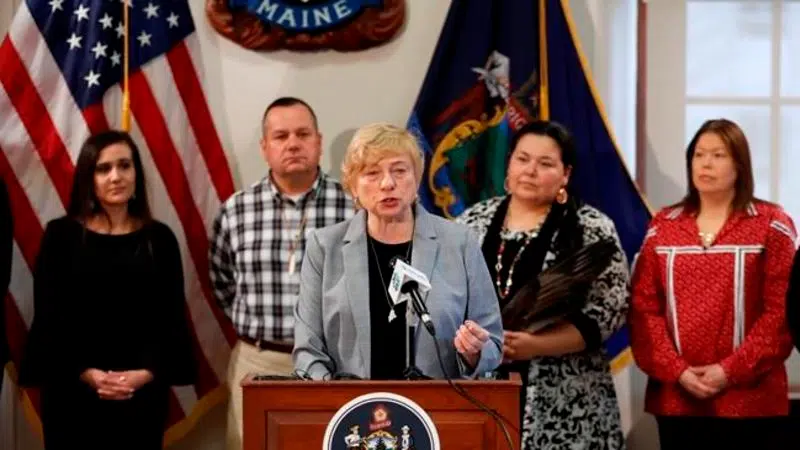
Maine latest to ditch Columbus Day, honour Native Americans
AUGUSTA, Maine — Maine joined a small but growing number of states on Friday that have renamed Columbus Day to honour indigenous people as part of a movement to recognize the dark side of colonialism in the Americas.
Several cities and a handful of states have made some move to celebrate Native Americans on the federal holiday dedicated to the 15th century explorer Christopher Columbus, and the movement appears to be gaining momentum: Just this year, New Mexico’s governor signed such a law, Vermont’s effort awaits the governor’s signature, and similar bills are pending in Kansas and Massachusetts. Maine’s governor, Janet Mills, signed a law Friday to change the name of the October holiday to Indigenous Peoples’ Day.
“There is power in a name and who we choose to honour,” Mills said.
